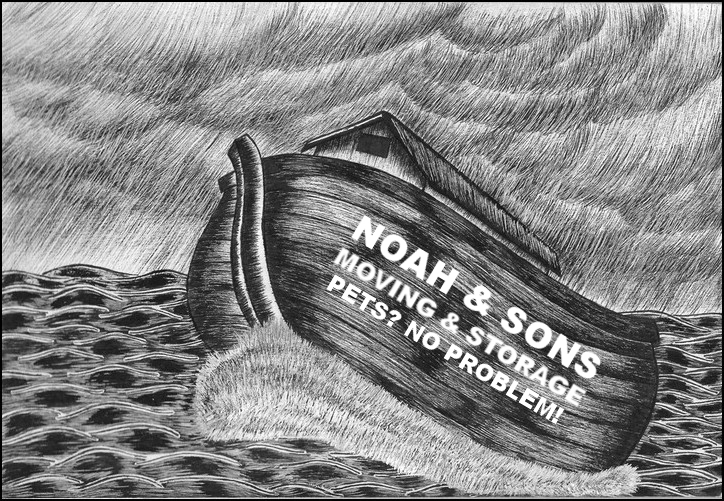The May 2024 issue of this beloved publication marks the first occasion the column I share with Hal Smith (and various guests), “Ain’t’cha Got Music,” is absent from its pages (or screen for you online subscribers) since the inaugural offering in November, 2020. Fear not, faithful reader, both Mr. Smith and Mr. Barnhart are still fighting fit, and we will continue our forensic dissection of music both beloved and bygone in next month’s edition! Hal was so busy traveling and performing in April, he only had the 7th-9th available to work on our planned edition highlighting New Orleans cornet legend Johnny Wiggs. Those dates didn’t work for me so editor Andy Senior has had to fill pages B-12 and B-13 with something new and novel! [ Editor’s Note: This month the space featured Hal Smith and Keven Dorn continuing a conversation on Morey Feld.]
My excuse is the antithesis of Hal’s: I’ve had over a month sans gig—a rare situation that would have sent me into paroxysms of terror during my 20s-40s, but now in my fifties creates a feeling of peace and possibilities. Why am I relieved that I’m currently not beholden to perform double or triple-headers on a daily basis? Because this particular hiatus finds me in the position of having to move from the home I’ve owned for 30 years: the only place Anne, my wife of twenty-four years, and I have ever known together, and the location where OKOM took me from saloon pianist to festival headliner to lecturer to writer. It’s the place where I’ve taught hundreds of students, booked thousands of gigs, and spent countless hours practicing, rehearsing, composing (in the style of), arranging, learning about, and championing the music we congregate around these pages (or screens) to celebrate.
The Whats, Wherefores, and Whys
I’ve often been told that the three most stressful situations in a person’s life are, in alphabetical order, death, divorce, and moving. While I’ve no plans to experience the first two, it seems I can’t escape relocating. Most readers will query “What’s the big deal? People move all the time.” I would answer that beyond the emotional upheaval of uprooting one’s self to journey to the unknown, there’s the matter of relocating not just one’s self, but one’s stuff.
You see, as a musician-cum-historian-cum-hoarder, I possess an inordinate amount of materials to shift from the home I’ve known to the one I’ve yet to discover, including two sound systems (with requisite speakers, amps, mics, stands, monitors, old salami sandwiches: the works!) three pianos collectively weighing over a ton, 3,000 LPs, 8,000 CDs, 10,000 books, and 30,000+ pieces of sheet music. That’s just the musical stuff. If you tally everything I have to transfer from hither to yon I’m a poster child for comedian George Carlin (Google if you’ve missed the reference). This transition is so rough my oh-so-patient and long-suffering wife has taken to directing another of Carlin’s routines, “Seven words you can’t say on TV,” at me on a regular basis.
Of course, she’s got stuff too. She’s owns umpteen flutes, ranging from 14-carat gold to wood, alto to piccolo, glass to formica, but they only occupy the space of an octave of one of my pianos, and I can still close the key-cover. This fact emboldens her to constantly remind me that although she personally takes up slightly more than fifty percent of the space I myself inhabit, she’s responsible for less than 7.423% of the STUFF we have to move from Mystic, CT to ___, CT.
“Why Connecticut?” you logically question, “why not someplace like Georgia or Texas or, well, almost anywhere else—other than California—where the cost of living is SO much more reasonable?” I have to answer that Anne’s and my remaining parents are firmly entrenched in CT and, in their 80s, are not inclined to move somewhere more economically friendly. So our move, though fraught with peril, will most likely be under sixty miles.
One’s perspective on decamping is a matter of frequency and experience. The other day, while Anne and I were making our seemingly hundredth trip to one of our three storage units, we met a woman who was emptying hers. Anne remarked, looking at the amazingly efficient packing job the woman was undoing, “This is the work of a professional!” The lady informed us, rather cheerfully, “This is my 19th move since 2008, and I’m not even in the military!” Deftly ignoring my question, “Is someone after you?”, she trotted down the hallway, arms laden with stuff she was most likely going to place in her twentieth locker.
Although the reason for her perpetual bivouacking remains unclear, we’re moving because of the rising tides. If climate change (or whatever term is currently in fashion) would simply slow down or reverse itself, we’d see out our remaining years in Mystic, CT on Edgemont Street. The problem is the house we lovingly named “River’s Edge” has more than once come close to being rechristened “A River Runs Through It.” It’s only a matter of time. Luckily, memories are easier to pack than physical objects and we’ll be leaving with truckloads of those. Family gatherings; all the friends who came to visit; musicians passing by while heading from one gig to the next who swung through to billet for a day or two; the slow and steady evolution of Anne’s and my duo Ivory&Gold®; laughter and tears: all add up to the life we’ve created in this singular place. We’ll take all we materially possess with us when we leave, but so many intangibles will remain behind. It’s ironic that a location where we’ve spent so little time over the past quarter-century, being on the road an average of 40 weeks-a-year, is so much a part of who we are.
Wherever You Find Yourself, There You Are
Throughout the labyrinth of showings, navigating terms and contingencies from potential buyers, finding a small home to rent as we’ll not have time to find our new “forever” home until the end of this year, the eventual closing, questions from neighbors, family and friends, and hoicking three tons of (by now, you know the word, but we’ve begun using another plausible choice as so far we’ve completed only 20% of the move), I’ve tried to maintain the notion of flow—on the surface, as in “going with the flow,” but more regarding allowing flow to happen. We needed a buyer and a neighbor has fallen in love with the place and wants to add onto his property. Flow. As I was informing our other neighbor across the street that Anne and I would be selling, he mentioned he had purchased a small house to renovate and had stalled completing the final 5% of the job because he was fed-up with tenants. “However, YOU,” he drawled, “I’d rent to any day!” Flow. We discovered we needed an additional storage unit and the manager gave us a steep discount on the third one and all three are in the same building less than thirty steps apart. Flow. A small, family-owned piano moving company salivated over the chance to move our Mason & Hamlin Double B seven-foot grand, our Chickering baby grand, and our Mason & Hamlin upright, so is charging us a fraction of the cost to move each piano individually AND they’ll be moving my precious babies into the basement of Anne’s folks’ house that has never had a drop of water in it in the 57 years they’ve lived there. Flow.
An example of the concept of flow is the juxtaposition between situations we find ourselves in and those in which we put ourselves. For instance, we’ve all experienced traffic jams. We can’t do anything about them. 2000 cars are occupying a road designed to allow 500 to flow. That’s the situation we’ve found ourselves in. Our reaction to this is the situation we put ourselves in. We can choose to flow or fight. Certain previous actions can inform our reaction. If we left early for our gig, we’ll now start looking around at the beautiful countryside—or buildings, or Maserati next to us—that we never notice as we hurtle across the tarmac at 75 miles an hour; if we departed late for our gig, we’re mightily pissed off so many people with nowhere nearly as important a destination as ours have the nerve to be on THIS very road at THIS very time!! Fact is, we choose to embrace or eschew flow simply by our reactions to what’s around us. Jimmy Durante laid to waste centuries of psychology and philosophy with his observation “Dis is da situation dat prevails.”
If all this sounds like metaphysical prattle I only point out the wisdom of the centenarians out there. Amid myriad divergent reasons they offer when asked how they’ve lived so long (i.e. tetotaling vs. imbibing; little vs. lots of sleep; an all-protein vs. vegan diet) two maxims never fail to appear on their lists. The first is “Don’t stress over what you can’t change” (another way to describe embracing flow) and the second is “Keep moving!” Macrocosmically, they’re ostensibly referring to putting one foot in front of the other; microcosmically, their message puts my move from one abode to another in perspective. One move leads to the next, and stasis is the enemy. So, for this edition of my monthly rambling, I’ll add to the conclusion of my first column (TST July 2021), in which I used Ralph Sutton’s immortal sign-off on all his correspondence: “Keep Breathin’!” All together now: “Keep Movin’!!”
(Postscript: To which my forbearing wife quietly suggested I add: “Toward. The. Dumpster!”)
Jeff Barnhart is an internationally renowned pianist, vocalist, arranger, bandleader, recording artist, ASCAP composer, educator and entertainer. Visit him online atwww.jeffbarnhart.com. Email: Mysticrag@aol.com























